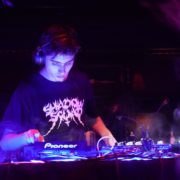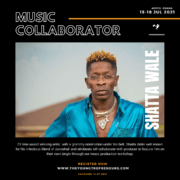Parsley Palette on how he became a music producer for top fashion houses by being in the wrong place at the wrong time
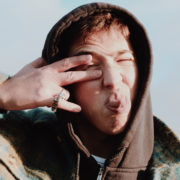
Music producer and DJ Parsley Palette is only 19 years old but his successful career is light years ahead of age. Parsley’s style of going against the grain has earned him an esteemed roster of clients in the fashion and music industry as well as leading him to open up Soho Records Ltd, a record studio with locations in London and Boston.
This is just the beginning for Parsley Palette, who has a lot more to come this year – we caught up with his journey so far below:
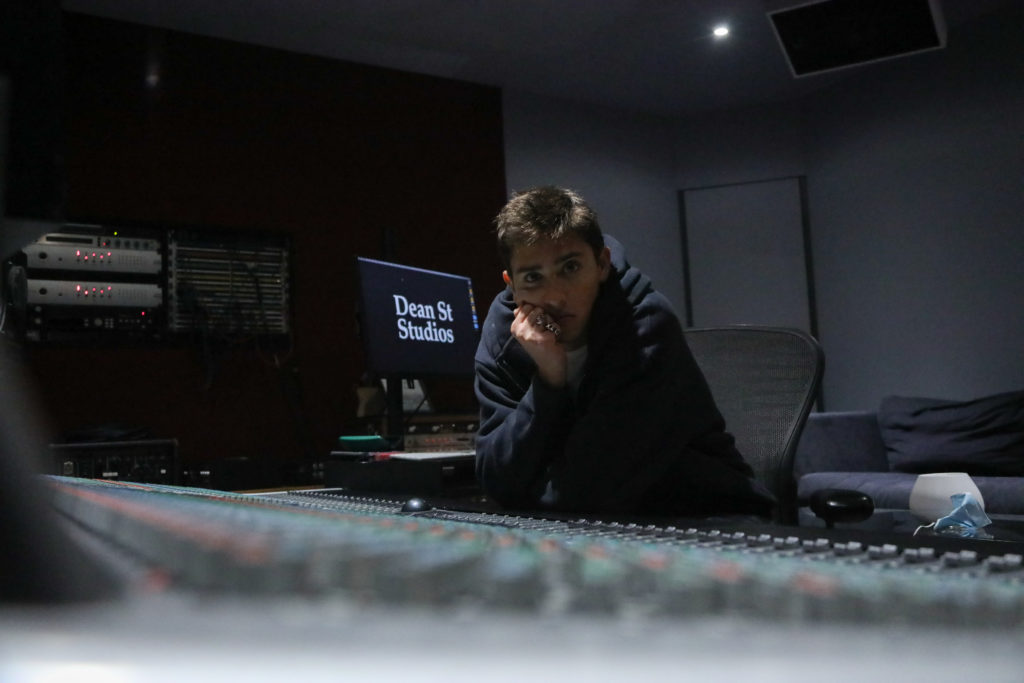
How did you get started on your career as a music producer and curator?
When I was about six or seven I was taught at school how to play the piano. After a couple lessons I realised that being told how to position your hands, “correctly” and perform, “correctly” just wasn’t for me. I then picked up the sax and began to teach myself a range of instruments like drums and bass which all factor into how I started my music production and curation career. At about twelve I discovered the power of music production, an art form when one can always be heard but not necessarily be seen. Starting off as an early teen churning out up to 16 or even more beats a day, they slowly developed into full length tracks, with my works getting recognised by recording artists, producers and engineers. I quickly found myself in studios across London and the rest of the world recording rappers, singers, drummers, you name it.
I’ve always had a musical ear and with my love of fashion I thought it would be a cool, individual job to curate music for fashion houses, similarly to how one would curate art for a gallery. At about 15 I knew that in order for me to pursue this career and also benefit my musical one, I would have to make connections and network… so I did… but I took it to the extreme.
I would go to high-profile fashion events that I definitely wasn’t invited to or even attend fashion week shows, blagging my way in meetings with the top dogs. And that’s really how I started my career in a nutshell.
How did you develop your skills and how do you continue to develop them?
Trial and error. The easiest example for me to talk about it the drunken swing drum loop. Famously first really heard in the works of J Dilla and D’angelo. This was my first real production technique I developed. I would practice for hours everyday plugging in the same loop, shifting the kick sounds, nudging the snare, emphasising the quintuplet-swing in the hats. And then delete it all, start over again. So that when it came to a time that I was in a session and an artist would say they want a drunken swing feel I can make it within seconds. I perform the same theory in my London studio with anything, from perfecting the perfect mix for vocals to emulating an 80’s sounding drum kit.
Who do you look to when you need some current inspiration?
Literally anything or anyone The jazz greats are a huge influence like Charlie Parker or Ella Fitzgerald. But when it comes to inspiration for me it’s got to be Disclosure, Mark Ronson and J Dilla.
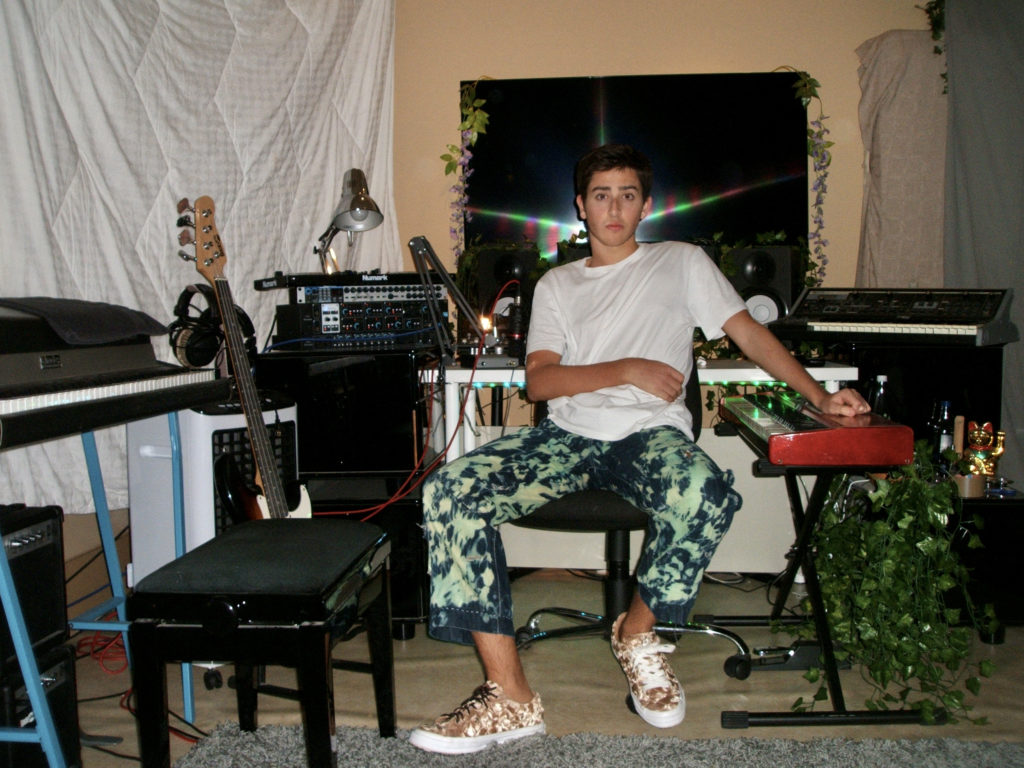
How would you describe your sound?
Diverse, warm and relatively un-orthodox. When I get new artists into Soho Records I’m always intrigued by their own sound and take small fragments of it into my own works.
What did you listen to growing up or hear being played by family/friends that’s influenced you today?
So I grew up surrounded by music lovers but not musicians, literally no one in my family plays or is physically involved in music. Music would always be playing around me, be it, Barry White, George Michael or Nora Jones – I don’t think that it necessarily influenced me but for sure enhanced my musical taste and ear.
What does music curation entail?
From personal experience I believe music curation requires someone with a good eye and ear for detail. You have to be on point and constantly up to date with what’s going up globally in both the fashion and music world. You also have to understand and engage with music from all corners of the earth in order to really tailor the best music. The music has to compliment the fashion just like how the fashion has to compliment the music. So you can’t just be picking at random. For example if a new seasons collection is based off of traditional Chinese influences I’m not just going to be playing Playboy Carti but something more fitting like Liu Fang.
What’s your favourite part of the process?
My favourite part of the process has got to be going on set for fashion campaigns. I love seeing everything being set up and my music being blasted out of the speakers during the shoots.
What led you to making music for fashion shows and campaigns?
One of my favourite stores to tell is when I went to a launch event of a brand (which I won’t name because ironically I now curate music for them). I arrived early, snuck into the bathrooms an hour before the event started and then waited. As soon as I could hear the booming echos of executives and designers voices I bolted out of the bathrooms and just started to meet everyone. Saying, ‘Hi, long time no see?’ to people that I’d never even met before in my life, later to find out that one of them was the creative director for a world leading fashion brand. You also have to remember that when I first started to do this I was only about 15/16 so no-one really knew me and most of them thought I was probably just a kid trying to get an autograph. But what really led me to making music for fashion shows and campaigns was my musical ear and drive to do something unique and exiting for someone my age.
Can you share some advice for navigating the industry as a young creative from maintaining relationships to building a brand or being professional?
I don’t like how an art form should be restricted and restrained by, “correct” etiquette. I’m a strong believer that one can’t be taught how to be creative or how to perform an art. I feel it’s more a process that a creative individual should explore through practical work and creative self-exploration. So in terms of advice; don’t be afraid to experiment and try new things with music and sounds, be different and individual because it’s much more interesting to hear an individual than a follower. Also have confidence in yourself because if you lack confidence you won’t go as far as you can, especially if you’re young and creative you can very easily be taken advantage of… trust me.
Follow Parsley Palette on Instagram
Discover more from GUAP’s Fashion section here




![ZINO VINCI’S ‘FILTHY & DISGUSTING’EP BRINGS YOU TO THE CORE OF THE ARTIST [@ZinoVinci]](https://guap.co/wp-content/uploads/2023/10/Zino-4.jpg)

